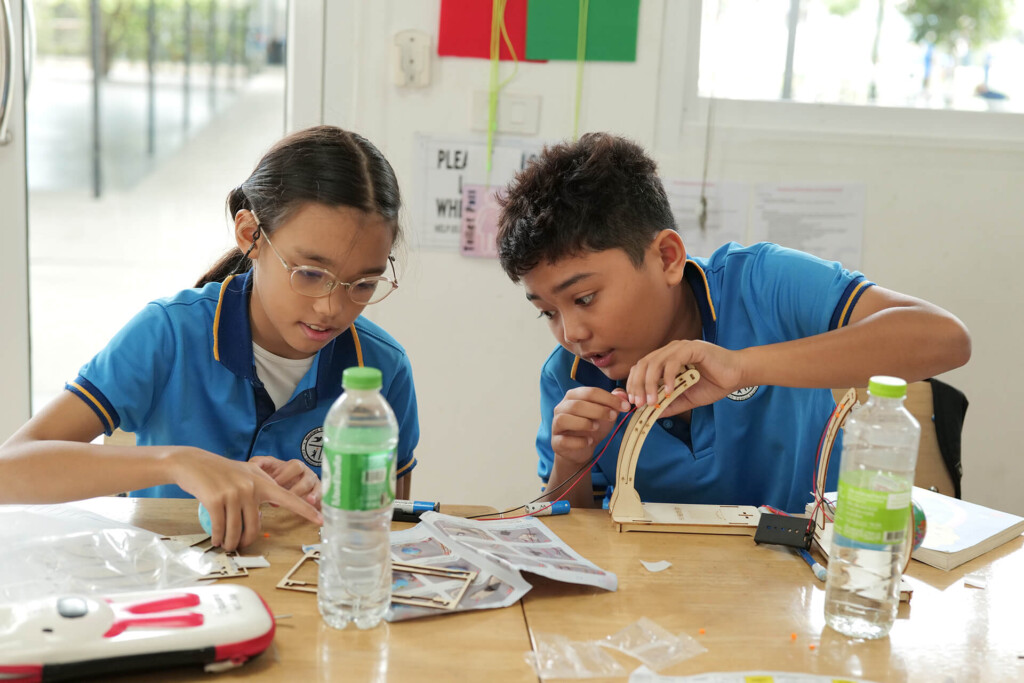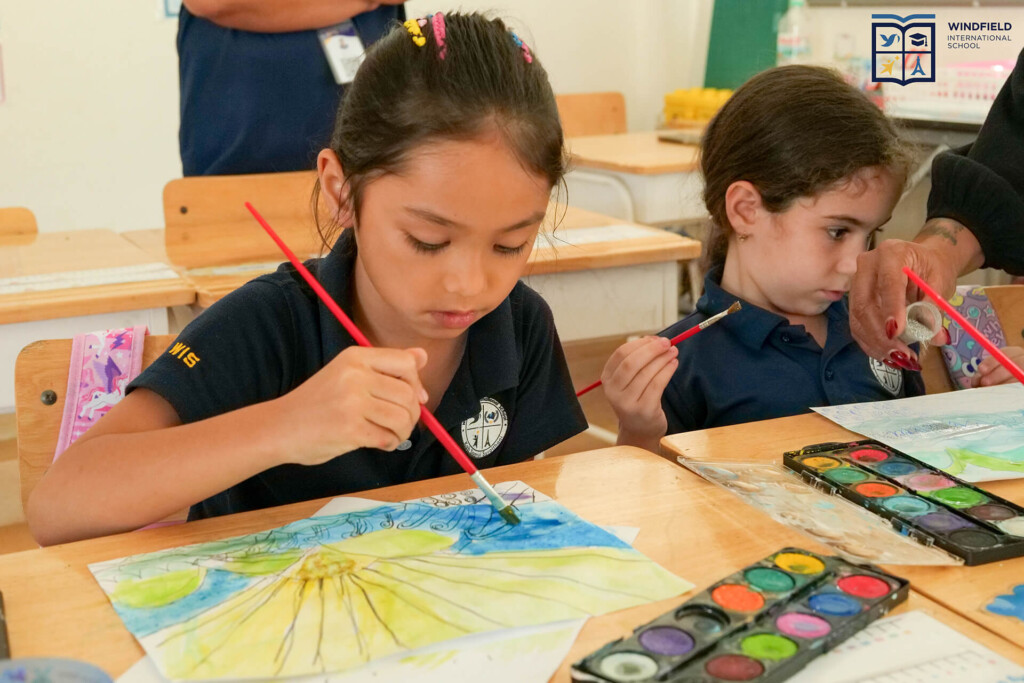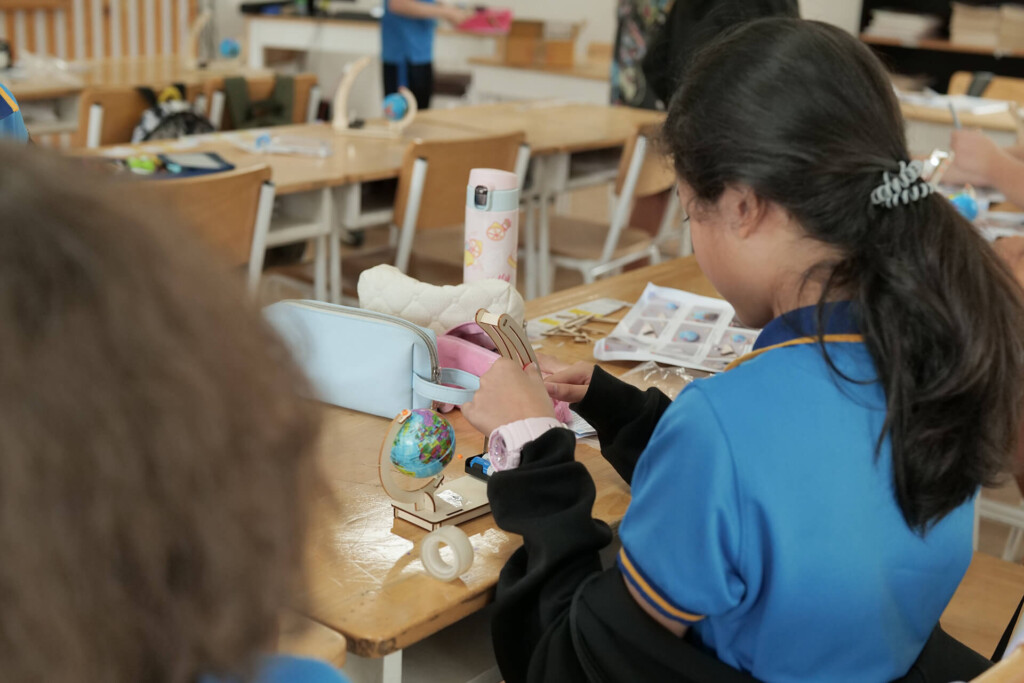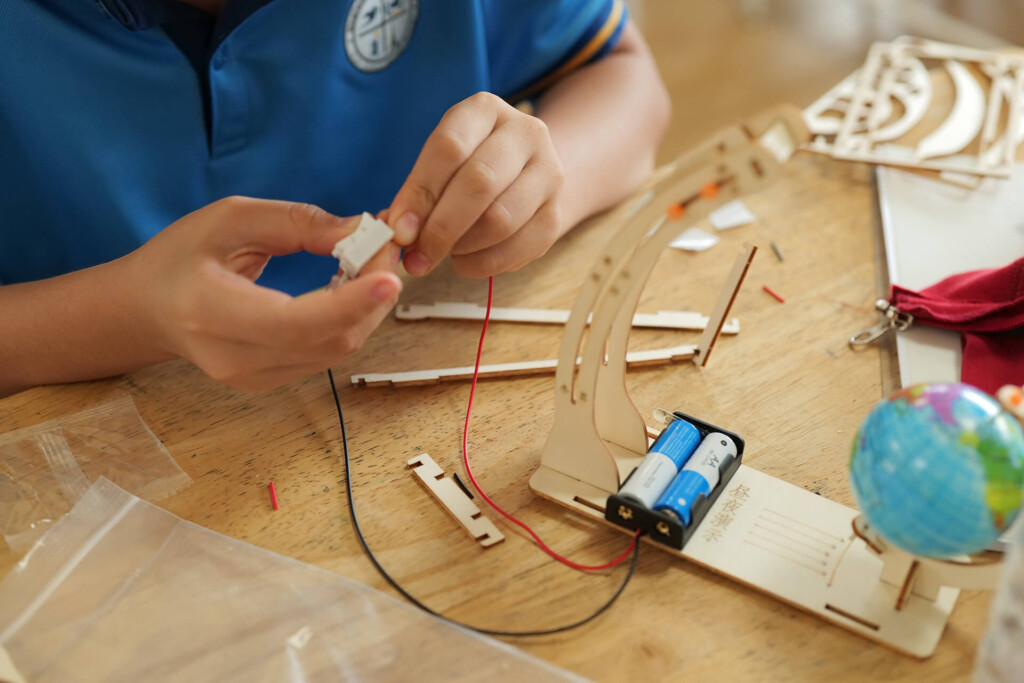The Élémentaire stage (ages 6–11) at Windfield International School combines the rigour of the French Ministry of Education curriculum with a rich, multilingual and multicultural environment that few schools can match.
A Rigorous and Balanced Curriculum
- A structured programme fully aligned with the French Ministry of National Education.
- A balanced timetable blending academic excellence, the arts, physical education, and civic values to nurture well-rounded, confident learners.
- Continuous assessment and personalised support to help every child succeed and prepare for Collège and beyond.
Strong Emphasis on Languages and Culture
- Extensive language learning is at the heart of our elementary programme.
- English is taught for several hours each week, far exceeding the national requirement.
- From Year 2 (CE1), pupils may add a second foreign language (Spanish or Mandarin).
- Thai language and culture are introduced through dedicated weekly sessions, giving students a genuine understanding of their host country.
- Several non-language subjects—such as Art, Music, and selected Physical Education lessons—are taught in English under the EMIL model (Enseignement de Matières Intégrées en Langue), reinforcing bilingual skills in authentic contexts.
Specialist Teaching Rare in France
Unlike most primary schools in France, Windfield provides subject-specialist teachers in:
- Art and Music,
- Physical Education, and
- Swimming,
ensuring expert instruction and inspiring, high-quality lessons.
A Nurturing, Multicultural Environment
Set within a truly international community, Windfield offers a warm, inclusive atmosphere where children develop curiosity, respect for others, and the ability to thrive in both French and global settings.
By combining French academic rigour, rich bilingual exposure, and specialist teaching, Windfield’s Elementary Programme builds strong academic and personal foundations -preparing students to excel in Collège and to embrace opportunities anywhere in the world.



